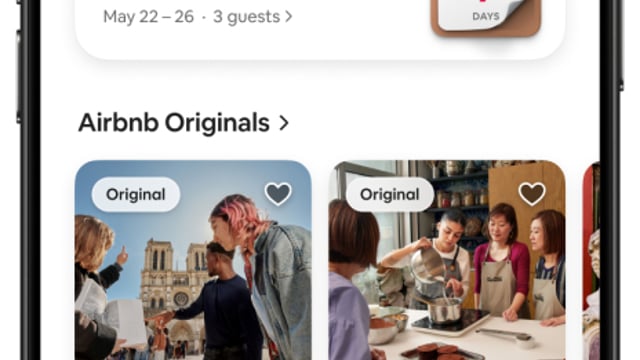
With new in-app services and immersive experiences, Airbnb challenges hotels and OTAs alike—tapping into travelers’ growing demand for personalization, local connection, and seamless planning.
Airbnb has officially evolved from a home-sharing platform into a full-scale travel ecosystem. With its 2025 Summer Release—including the launch of Airbnb Services, Airbnb Experiences, and a completely redesigned app—the company is leaning into the modern traveler’s desire for personalization, convenience, and cultural immersion. It’s a move that validates the growing influence of what were once considered “ancillary” services and could signal a broader shift in how travelers choose between short-term rentals, hotels, and everything in between.
Key Takeaways:
- Airbnb Services bring hotel-like amenities to wherever you are.
With 10 service categories—from in-home chefs to certified massage therapists—Airbnb is giving users access to elevated travel (or at-home) perks that rival what premium hotels offer. -
Travelers want experiences that connect them to place—and Airbnb is delivering.
The relaunched Airbnb Experiences platform focuses on local, often exclusive activities—from ramen-making with acclaimed chefs to Lucha libre training with a pro wrestler.“Airbnb’s expansion into local experiences confirms a trend that many in the industry have long recognized and supported: today’s travelers seek authentic connections with their destination that go beyond accommodation,” said Enrique Espinel, COO of Civitatis. “The fact that global players are investing in this space validates the enormous potential of tourism services previously mistakenly referred to as ancillary… Activities are the true driving force of travel.”
- A new app ties it all together—seamlessly.
Airbnb rebuilt its app to function as a dynamic, trip-planning companion, recommending services and experiences before and during your stay, and keeping everything organized with a real-time itinerary and messaging hub. -
Airbnb is going head-to-head with Viator—and could become a dominant force.
Tripadvisor’s Viator brand led the tours and activities sector in 2024 with $4 billion in bookings, but Airbnb’s platform advantage could push it much further. With its redesigned app, built-in host network, and social features, Airbnb is positioning itself to outpace Viator by 2030—potentially reaching $12 billion in services and experiences bookings, according to Morningstar’s Dan Wasiolek.“This stands to increase Airbnb’s allure… We see the service and experience launch serving as a catalyst for intermediate-term revenue growth,” Wasiolek noted, also highlighting Airbnb’s higher margins in this sector due to low capital costs and higher take rates compared to its core accommodations business.
-
This release challenges hotel loyalty programs to evolve.
As Airbnb extends its value proposition far beyond the guestroom, hotels will need to rethink loyalty—shifting from points and perks to experiential offerings that tap into guests’ identities, preferences, and interests, both on-property and off. Some hotel brands are already revamping their offerings to emphasize personalization and experiential value.- Mandarin Oriental has reimagined its “Fans of M.O.” program, introducing invitation-only tiers like “Fans of M.O. Silk” and “Fans of M.O. Pearl,” paired with a new guest app that enables personalized, app-driven services and access to local experiences.
- Marriott International is investing $12 billion into personalization tech and gamified travel planning. Their “Travel Roulette” feature within Marriott Bonvoy lets guests spin a digital wheel to unlock spontaneous destination offers, appealing to experience-driven travelers.
While these moves signal an industry-wide push toward personalization, Airbnb’s unified platform—offering stays, experiences, and local services all in one—remains uniquely integrated. For hotel brands, the challenge isn’t just offering personalization, but doing so in a way that’s seamless, scalable, and deeply embedded in the travel journey.
- Hospitality tech leaders should take note.
Airbnb’s ability to stitch together services, activities, and stays in one user-friendly interface sets a new bar for travel platforms. It’s a reminder that personalization, ecosystem design, and mobile-first experiences aren’t luxuries—they’re expectations.








